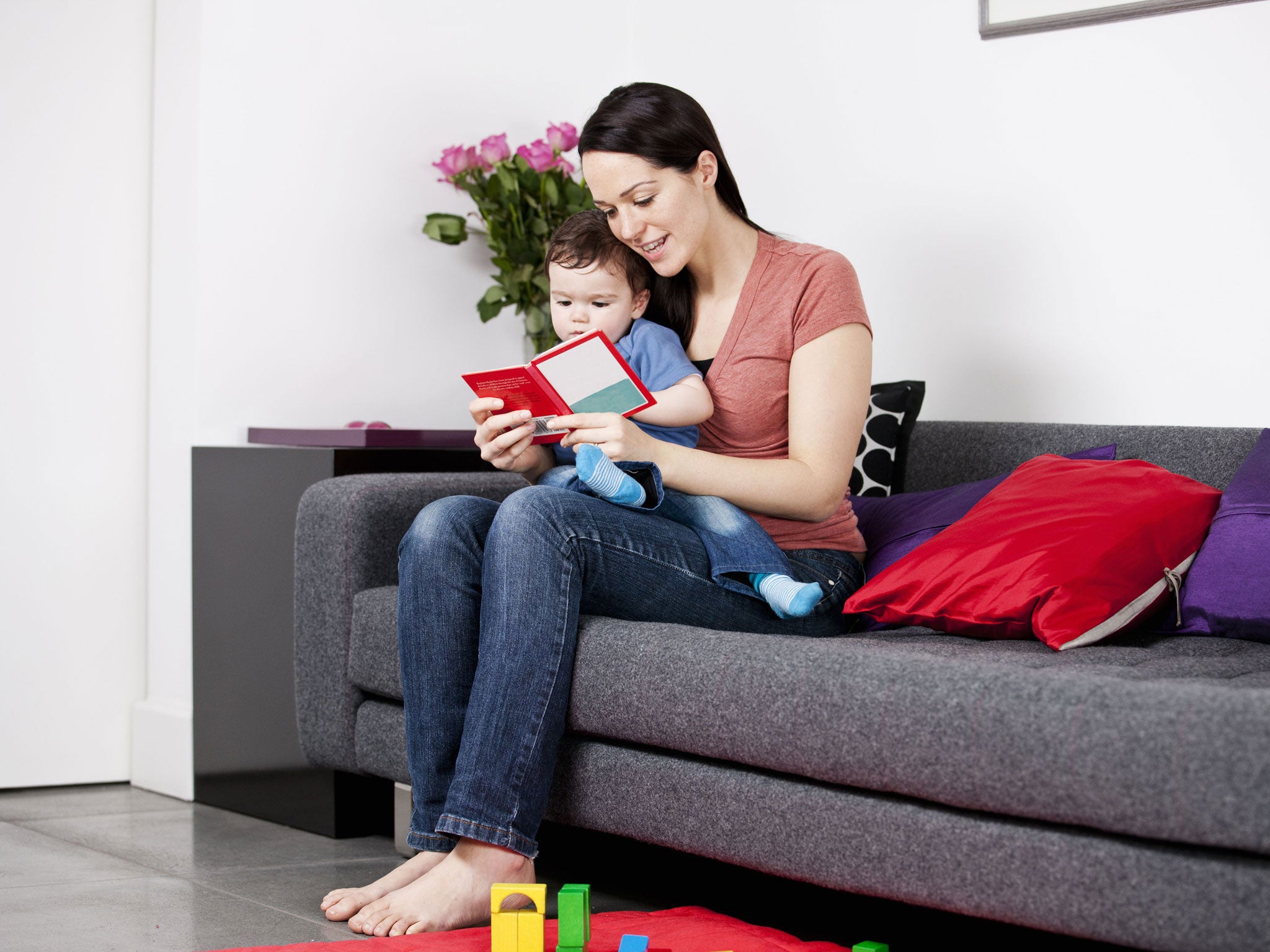Studies show link between speaking to babies and their future performance in school
Overheard conversations, watching television and playing with an iPad did not show to benefit children

Your support helps us to tell the story
From reproductive rights to climate change to Big Tech, The Independent is on the ground when the story is developing. Whether it's investigating the financials of Elon Musk's pro-Trump PAC or producing our latest documentary, 'The A Word', which shines a light on the American women fighting for reproductive rights, we know how important it is to parse out the facts from the messaging.
At such a critical moment in US history, we need reporters on the ground. Your donation allows us to keep sending journalists to speak to both sides of the story.
The Independent is trusted by Americans across the entire political spectrum. And unlike many other quality news outlets, we choose not to lock Americans out of our reporting and analysis with paywalls. We believe quality journalism should be available to everyone, paid for by those who can afford it.
Your support makes all the difference.Speaking directly to a baby or reading a bedtime story has a direct impact on how well they will do in school and possibly their career in later life, according to child psychologists who warned against using TVs and iPads as babysitters.
A series of studies has shown that frequent verbal interaction with a child as young as 18 months on a daily basis can boost their educational performance at the age of eight, which is likely to serve them well for the rest of their lives, they said.
However, the words must be spoken directly to babies rather than being an overheard conversation between adults. Neither was watching television or playing with an iPad shown to have any benefits, and could in some circumstances actually put children behind in terms of educational development, the researchers said.
The studies found that language development in babies and toddlers is a key predictor of how well they will do in school and later life and that differences between children start as early as 18 months, said Professor Anne Fernald at Stanford University in California.
“The science is clear. Providing children with learning opportunities in their first years of life is as important a part of care-giving as changing and feeding them,” Professor Fernald said.
“If you want your child to do well at school, speak to them more as a baby. You are obliged to feed that child and put that child to bed, so talk to it - 90 minutes a day adds up to 60 hours a year. By speaking to a child, you are building a mind,” she said.
By attaching small recording devices to children from different social backgrounds the researchers found huge differences between families in the amount of child-directed speech that toddlers heard over a 10-hour day.
One toddler for instance heard more than 12,000 words in direct verbal interactions with adults, while another heard just 670 words during the entire day, Professor Fernald told the American Association for the Advancement of Science.
Professor Fernald has developed test based on how quickly a child can comprehend a simple sentence, such as “look at the ball” when shown two pictures of a dog and a ball. At 18 months, some toddlers are able to respond to the command within 750 milliseconds, while others take up to 200 milliseconds longer.
“A 200-millisecond difference in response time at 18 months may not sound like much, but it’s huge in terms of mental processing speed,” Professor Fernald said.
At two years, these disparities can be equivalent to a six-month gap between infants, which leads to even greater disparities as the children get older due to a “developmental cascade” based on linguistic ability that affects later educational success and career opportunities, she said.
Parents have no excuse for failing to speak to their children. Although reading books out loud are one of the best ways, it could also involve just simple conversations when doing everyday chores, Professor Fernald said.
“Books are fantastic because they exercise their brains. They have to keep up with what happened a few pages ago. But it’s more about sharing a book than reading a book, there should be interaction,” she said.
“Television has a negative correlation with language, and iPads may make good babysitters but they don’t break a child’s gaze. I can’t imagine them being wonderful. It’s not demanding of a child to be staring at a screen,” she added.
“Television does not care one bit what a child is interested in, while a parent interacting verbally with a child moves with a child’s response. Parents say that their children are hypnotised by screens, but I think that is worrying,” she told the meeting.
Join our commenting forum
Join thought-provoking conversations, follow other Independent readers and see their replies
Comments